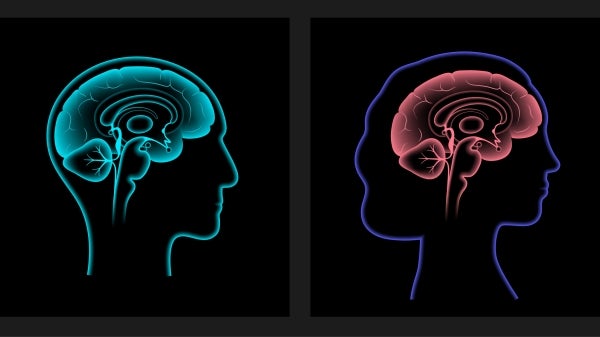Edson seed grants advance innovative dementia solutions

Funding from the Charlene and J. Orin Edson Initiative for Dementia Care and Solutions supports research projects into neurological diseases, such as Alzheimer's and dementia.
More than $300,000 from the Charlene and J. Orin Edson Initiative for Dementia Care and Solutions was awarded to three Arizona State University research teams for innovative research projects. The funding comes from a portion of Charlene and J. Orin Edson’s $50 million gift to ASU for dementia research and education initiatives.
The Edson Initiative for Dementia Care and Solutions aims to revolutionize care for individuals suffering from neurological disease and support their caregivers. The Edson Initiative will support collaborative research aimed at understanding the roots of dementia in order to treat, detect and prevent its occurrence in patients.
“The Edsons have been very generous to Arizona State University over the years with multiple endowed and nonendowed gifts to a variety of research causes,” said Joshua LaBaer, executive director of ASU’s Biodesign Institute. “We are excited to see this vital funding propel innovative researchers and students forward in making impacts that help those suffering from dementias and other neurodegenerative diseases.”
Proposals awarded the seed funding by Biodesign embody the spirit of the Edson Initiative for Dementia Care and Solutions by bringing together scientific experts and students from different disciplines to create solutions to the challenges of neurological disease.
Protein-based therapies for neurological disease
Michael Sierks, a professor in the School for Engineering of Matter, Transport and Energy; Jeremy Mills, an assistant professor in the School of Molecular Sciences and the Biodesign Center for Molecular Design and Biomimetics; and Brent Nannenga, an assistant professor in the Biodesign Center for Applied Structural Discovery and the School for Engineering of Matter, Transport and Energy, were awarded funding to analyze toxic proteins in neurodegenerative diseases.
The team will develop and apply high-resolution imaging techniques to characterize the structure of proteins commonly found in Alzheimer’s and Parkinson’s patients. The information discovered from these studies will be used to develop protein-based therapies to fight the mechanisms of toxic proteins in degenerative neurological diseases.
Interdisciplinary living learning lab
Another team led by David Coon, associate dean and professor in the Edson College of Nursing and Health Innovation; Philip Horton, interim director of The Design School; and Patricia Moore, an industrial designer and gerontologist, received funding to create the Edson Family Neurodegenerative Disease Research Center Living Learning Lab.
The lab will bring together scientists and clinical researchers from across ASU to design, test and implement tools that improve care — from everyday object use and behavior management approaches to health care systems and homes of the future. The research outcomes will provide a platform to build real-world solutions for those living with Alzheimer’s disease and related dementias and their family caregivers.
Uncovering molecular mechanisms of poor cognition
The final team, awarded for their work to decipher the underlying molecular mechanisms leading to cognitive dysfunction in Alzheimer's patients, is led by Ramon Velazquez, an assistant research professor at the ASU-Banner Neurodegenerative Disease Research Center. Velazquez will be collaborating with Patrick Pirrotte, an assistant professor at the Translational Genomics Research Institute (TGen) in Phoenix, and Matthew Huentelman, head of the Neurobehavioral Research Unit at TGen.
Velazquez’s team will be determining whether exposure to glyphosate, a common herbicide used to prevent plants from making proteins needed for their growth, is a risk factor for cognitive deterioration leading to Alzheimer’s disease. The team will utilize findings on environmental toxin mechanisms to better understand how exposure to chemical agents in people’s daily lives can affect their risk of developing neurodegenerative diseases.
More Science and technology

The Polytechnic School at ASU hits milestone mark at 10 years
The year was 2014.Taylor Swift released “1989.” "Frozen” and its soundtrack were stuck in the minds of many.Facebook was…

Study finds cerebellum plays role in cognition — and it's different for males and females
Research has shown there can be sex differences between how male and female brains are wired.For example, links have been made…

Artificial intelligence drives need for real data storage innovations
In southeastern Mesa, Arizona, construction crews are hard at work on a state-of-the-art data center. The $1 billion…

